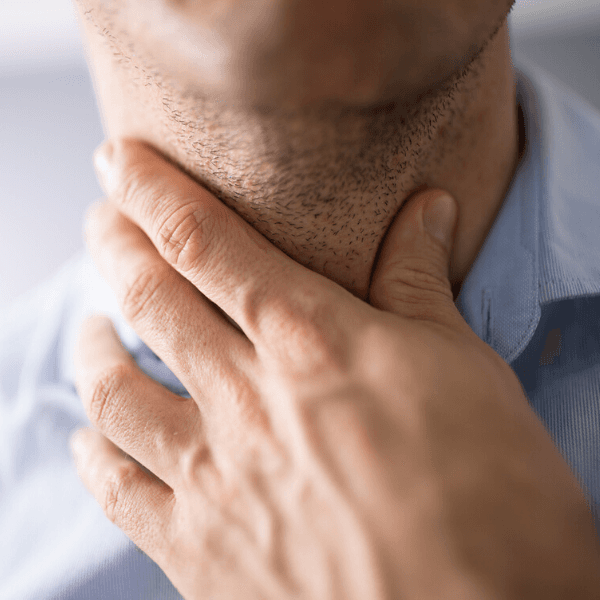Your thyroid is a butterfly shaped gland that sits in the middle of your neck. Most of us don’t know what a thyroid is, let alone what it does!
Your thyroid gland produces thyroid hormones that play critical roles in almost every function of the body. Thyroid hormones are chemical messengers that deliver instructions to different organs and tissues in the body. For example, insulin is a hormone released by the pancreas in response to high blood sugar levels, that directs fat and muscle cells to take up sugar from the blood.
Thyroid hormones control your metabolism (how quickly or slowly the body burns calories), and regulates your heart and other muscles, and digestive function. It also play a role in brain development and the building and maintenance of your bones.
At this point you might be thinking, “if thyroid hormones play a role in all of those bodily functions, and the thyroid gland is located in my neck, how could it possibly have any effect on my erectile function?”
So, how do thyroid issues cause erectile dysfunction?
According to the International Society for Sexual Medicine, hypothyroidism (an underactive thyroid) and hyperthyroidism (an overactive thyroid) may each cause erectile dysfunction because they cause symptoms including fatigue, low mood, and low sex drive. These symptoms of both hypothyroidism and hyperthyroidism may make it difficult to feel aroused and/or achieve and maintain an erection.
Hyperthyroidism in men is also often paired with premature ejaculation, and hypothyroidism with delayed ejaculation.
Other processes involved in getting and maintaining an erection have been linked to thyroid hormone problems, including interference with the hormones that regulate production of testosterone (the main male sex hormone) and weakened production of molecules that regulate blood vessel function in the penis.
Thyroid hormones certainly aren’t the only cause of erectile dysfunction, low sex drive and ejaculation issues, so if you’re having issues in the bedroom, it doesn’t mean that you definitely have a thyroid problem.
To get to the root of what may be causing sexual dysfunction, it’s important to have an awareness around some of the associated conditions.
What are some of the other signs and symptoms of thyroid issues?
What should you do if you think you are living with hypothyroidism or hyperthyroidism?
If you think you have hypothyroidism or hyperthyroidism, you should get in contact with your GP as soon as possible. Your GP will ask you about your symptoms, and if it sounds like you have a thyroid condition, they may conduct a blood test to measure the levels of thyroid hormones in your blood.
If your thyroid hormones are too high or too low, you’ll be given medication to correct them. While it may be worrying right now, it’s good to know that once your thyroid issues are treated, if there are effects on your sexual function it should return to normal.
Want to learn more about erectile dysfunction? Find out more on our erectile dysfunction information page.











